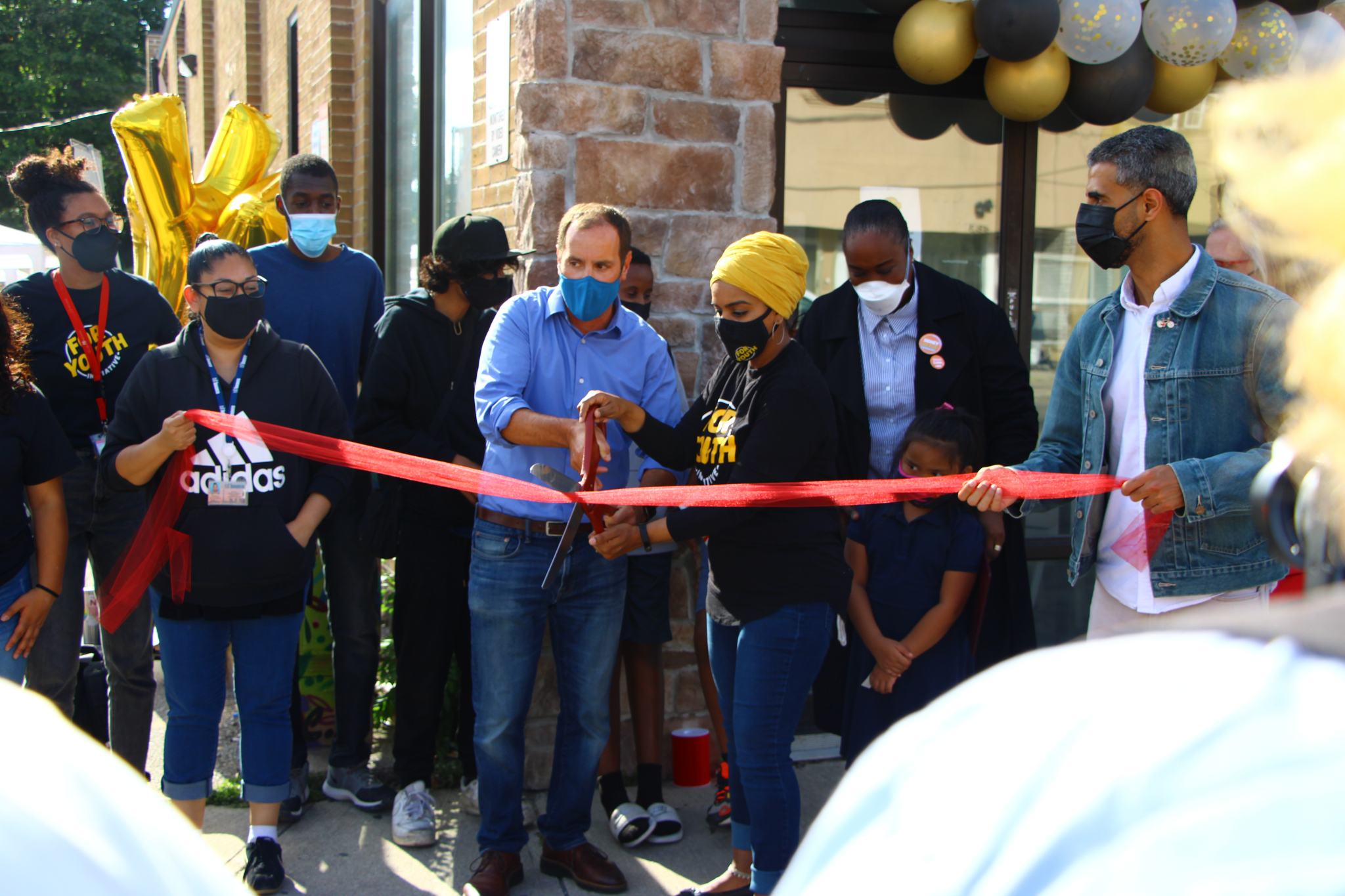A Toronto high school dealing with inadequate facilities for its suddenly enlarged student population was ripe for the chaos that followed and now requires co-ordinated efforts to fix complaints of racism and a breakdown in discipline, the executive director of a nearby youth support service says.
“It doesn’t feel like anyone was set up to succeed,” said Shaneeza Nazseer Ally, the executive director of the For Youth Initiative, which is on the same block as the York Memorial Collegiate Institute on Keele Street in Toronto’s northwest. “It doesn’t feel like students were, it doesn’t feel like teachers were, I don’t even know if the administration was.”
Fourteen of York Memorial’s teachers walked off the job in late October citing unsafe working conditions including fights and other unruly behaviour, broken locks on washroom and classroom doors, inadequate lighting and a revolving door of administrators. Several hundred students walked out in early December in protest of the state of the school, the unsafe learning conditions, over-policing and a shortage of teachers.
Nazseer Ally said the organization she leads is now working closely with the school and the Toronto District School Board (TDSB) to address the complex web of issues at play at York Memorial, where the majority of students are Black.
“I’m hopeful of the direction things are moving in. My team’s in there and involved and working collaboratively with the teachers and administration, and that is really promising,” she said.
Formed after a major fire at the previous York Memorial site in 2019 and a TDSB decision to merge its student population into neighbouring George Harvey Collegiate, York Memorial students have gone without extra-curricular activities or even a working auditorium so far this school year.
What the school most needs is a student engagement team, Nazseer Ally said, consisting of child and youth workers, youth outreach workers and social workers, who are often young themselves and are trained to engage and build trusting relationships with youth.
“It’s not a matter of them being beyond reach or not interested in school, it’s that you need to do the work to better engage them,” she said of the students being disruptive at the school.
“What shows up on the surface for a young person, there’s so much (hidden), it’s like an iceberg. There’s so much that they might be dealing with and the trust to open up about that doesn’t come out when (a) suspension is doled out,” she said.
The For Youth Initiative could help by providing a more productive alternative to suspension, she said, one where a young person can engage in their programming with trained staff who can address core issues and focus on graduation and skills training.
The school is very interested in the prospect, she said. “They are working with what they have. But what they have is very limited and problematic.”

In their most recent weekly update on the situation at York Memorial, TDSB superintendents said a new principal and two additional vice-principals (Donald Drummond and VPs Nana Bediako-Amoah and Ammer Askary) will join the school after the holiday break.
The superintendents previously said they are working as quickly as possible to hire more teachers at the school, developing an all-day nutrition program for all students, adding more supervision and counselling support and ensuring the school community is aware of a clear process to report incidents of racism.
“While there is still much work to do, we are starting to make much needed progress at the school and it is my hope that that will become much more evident in the days ahead,” TDSB executive superintendent Uton Robinson wrote on Dec. 2, the day of the student walkout.
The head of the Toronto local of the Ontario Secondary School Teachers’ Federation, Michelle Teixeira, said the school board must fix problems with its facilities as soon as possible, and over the longer term, should provide more support for students by way of additional hallway monitors, social workers, child and youth workers, educational assistants and psychologists.
“When students feel they have someone they can trust and they can turn to when they’re having issues, it decreases violence in the schools,” she said.
But with limited funding available at the TDSB, she said it is up to the provincial government to come up with the money required.
A spokesperson for the education ministry did not respond to questions about whether it had offered any additional resources or a recommended course of action to the TDSB or the school's administrators.
Nazseer Ally said one of the most important factors for future success will be working with the broader community, including the For Youth Initiative, to address underlying issues, which could include housing precarity, conflict at home, financial need, mental health issues and food insecurity.
“It’s a partnership,” she said. “We’re not going to be there to fill all of the youth needs, and neither are the teachers.”
Morgan Sharp / Local Journalism Initiative / Canada’s National Observer






Comments